In a film directorial career that has spanned decades, Lancaster County’s Mary Haverstick is used to following stories to their natural conclusions.
Be it a dramatic film, such as 2008’s “Home” starring Academy-award winner Marcia Gay Harden, or nonfiction, like her 2018 documentary “The Last Horsemen of New York” narrated by Liam Neeson, Haverstick has a way of turning a concept into a fully formed piece of art.
However, with her first book, “A Woman I Know,” there was no guarantee of any story, much less a finished project. In fact, the book itself began as work for a potential film before a grander picture began to reveal itself.
After a dozen years of work, Haverstick has stepped from behind the camera directly into the spotlight of the lead role of her own nonfiction writing effort, which somehow brings together NASA, the JFK assassination, and Fidel Castro’s rule in Cuba. Perhaps most importantly, the book shines a light on just how easily history can be relegated to the dark annals of time.
“In a book, you have a lot of space to flesh things out, and in fact my editor wanted me to flesh things out,” Haverstick, 63, said in a recent interview at the Mean Cup coffee shop in Lancaster city. “From the draft I submitted to the draft we got, it actually got longer, not shorter, and that would never happen in film. In a book, I was really surprised to find out that it's your statement, plain and simple, and there aren't all the compromises whether you're in a band, or you're in a film with actors where your vision can change quite a bit.”
Finding space
In 2009, Haverstick was serendipitously given the book “The Mercury 13” by Martha Ackmann, which gives an account of the titular group of women who attempted to change the male-dominated theory that only men could go to space during the Space Race of the late ‘50s and early ‘60s. The Mercury 13 passed the astronaut tests, but due to misogyny and other factors, none of them would end up leaving Earth.
She began to do her own research about the events and personalities in “The Mercury 13” and narrowed her scope to one Jerrie Cobb, who not only passed all the astronautical tests but would later shoulder the responsibility of publicly pushing back against NASA after the agency denied Cobb and her Mercury 13 counterparts the chance to go to space.Cobb was in her late 70s when she met Haverstick, and died in 2019 at 88.
Over the course of a dozen years – and, subsequently, 404 pages of “A Woman I Know” - Haverstick got to know not only Cobb, but the life that Cobb had purportedly lived over the last several decades. From the beginning, the reader is shown that not only was Cobb not telling Haverstick the full story, but that the full story potentially features intersections with some of the biggest historical events of the 20th century. As Haverstick got closer to Cobb, she eventually realized that she could no longer create a truthful film about Cobb based on the information she was given, so she let the film rights lapse and spent the next decade getting closer to her subject and the truth.
The book combines these two threads into two alternating currents – the first, a meticulously researched investigation into the double life of June Cobb, as well as “Jerrie Cobb” and numerous other identities with a lot in common with Cobb. Haverstick’s research, which stretches an additional hundred pages of footnotes in the back of the book, reveals new theories that Cobb could have perhaps played a part in the assassination of President John F. Kennedy and Lee Harvey Oswald’s life immediately prior to the assassination. The second thread is Haverstick herself engaged in a decade-long cat and mouse game with Cobb, first through sit-down interviews and later in globe-trotting vacations.
“It's difficult to summarize the book easily, because I think the devil is in the details,” Haverstick said. “I feel like I've proven that Jerrie and June had an operational duality, but it's very complicated, it wasn't straightforward double identity, it appears to be a borrowing of an identity. That's a difficult concept to even explain over coffee, which is why I needed a lot of pages to explain. But that's what I found, and I felt like I had to be true to what I felt I found.”
Haverstick was able to conjure a journalistic mindset as a WGAL correspondent in the ‘80s, but she approached the book more as what she's been since then – a professional steward of stories, intensely curious and willing to figure it out, even as years passed and the story itself grew wildly convoluted.
“You can look at my body of work, and you'll see that it's about interesting women, women's rights, stories big and small on the human experience, so there was nothing in my background that I might be interested in pursuing conspiracy theories,” Haverstick said. “I think that lends credibility to what I do have to say. I'd say right off the bat that not all conspiracy theories - I dislike that word - are on equal merit or footing. I do not subscribe to the vast majority of things that come under the heading of ‘conspiracy theories,’ yet I've written a book that goes against the Warren Commission, and actually brings counter-factual evidence against some of the existing conspiracy theories.”
President Lyndon B. Johnson established the President’s Commission on the Assassination of President Kennedy, also called the Warren Commission, on Nov. 29, 1963, to investigate Kennedy’s Nov. 22, 1963, assassination.
A woman to know
Haverstick doubted the book would ever come to fruition, and she was not alone. The first acknowledgement at book’s end goes to Haverstick’s partner and electronic musician Michele Mercure, who Haverstick notes “voiced concerns” about the book’s viability. Nevertheless, some of Mercure’s music, inspired by the book directly, accompanies the audiobook version and will potentially see its own release in the future.
While Haverstick says that she mentioned bits and pieces to friends and acquaintances along the journey of the book’s creation, very few knew exactly what she was working on during the process.
“It was 12 years - I mean, my Facebook page for that time was mostly my garden,” Haverstick said. “My friends were like, 'How are your onions?' I think people wondered, 'Oh, is Mary less active in her film career?' So, they knew I slowed, seemingly, but I hadn't slowed down at all.”
The book was written mostly during the first stage of the COVID-19 pandemic, which allowed her to hunker down and focus on writing. Since its release in mid-November, “A Woman I Know” has been featured in publications including the New York Times and the Telegraph UK, as well as nonfiction book lists from Barnes & Noble and the New York Post.
Others had reached out to Cobb over the years to learn her life story and been denied further access, from Netflix with its own documentary about the Mercury 13 to the writers of the “Captain Marvel” comic, who introduced a pilot character named “Helen Cobb” in the mid-2010s as a guide for Captain Marvel herself, Carol Danvers. With the help of literary agent and fellow Lancaster County native David McCormick, Haverstick finally brought as complete a picture of Cobb’s life as possible into the mix.
At its heart, “A Woman I Know” is very much dedicated to the women that society does not know very well at all – first, the women of NASA’s aborted female space program, and then the women who served as spies and double agents, and even the women who could have researched all of this along the way but did not or could not for a variety of reasons. It’s a historical story with globe-spanning implications, but also am intimate story of a relationship between two women, with one very much trying to learn about the other and one seemingly leaving crumbs along the way for her to do so.
“Me landing Jerrie's story was huge in and of itself because she said no to everybody else,” Haverstick said. “To be honest, she clearly didn't want to share the space story. I had her, and the reason I had her, I believe, is because she ultimately was interested in leaking, surreptitiously, her much more interesting story.”
"course" - Google News
December 11, 2023 at 05:30PM
https://ift.tt/7FrTC8J
Lancaster film director Mary Haverstick charts a historical course with debut book 'A Woman I Know' - LNP | LancasterOnline
"course" - Google News
https://ift.tt/VCsS90D
https://ift.tt/SMtDgps
Bagikan Berita Ini
![In 1991, director Mary Haverstick filmed 'Lancaster County 2020' [video, Q&A]](https://bloximages.newyork1.vip.townnews.com/lancasteronline.com/content/tncms/assets/v3/editorial/5/0a/50ae90ca-2e63-11ea-bdff-27841670ddc8/5e0f9d25933f0.image.jpg?resize=150%2C200)
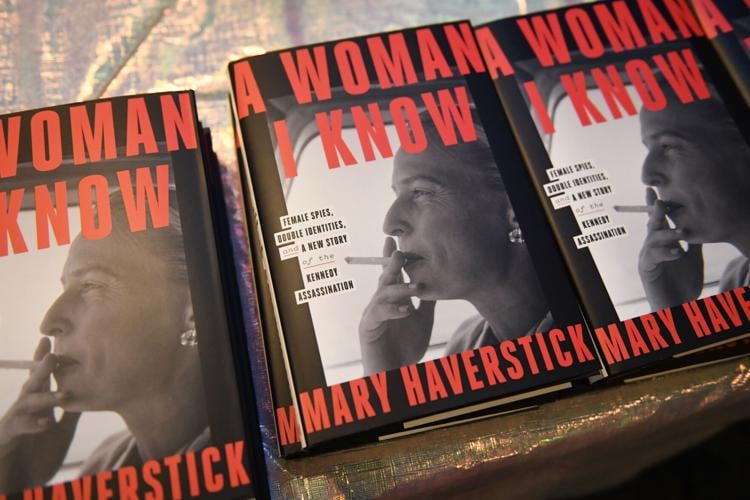
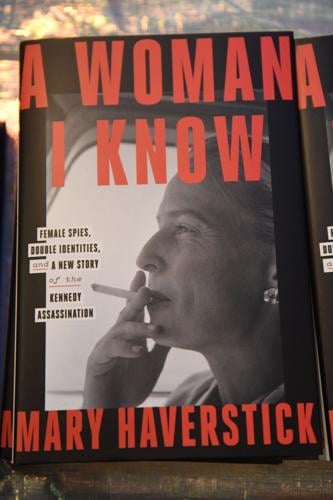
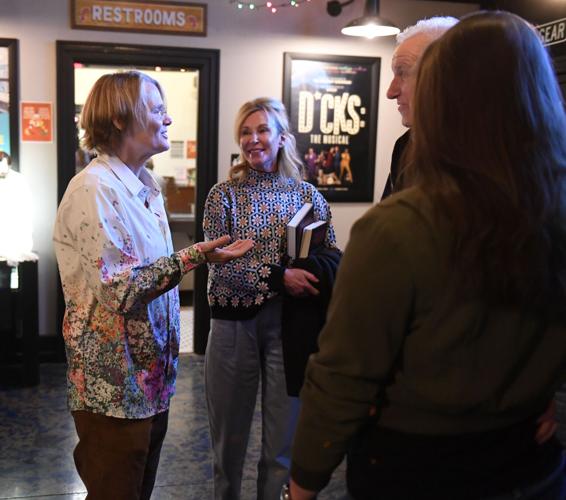
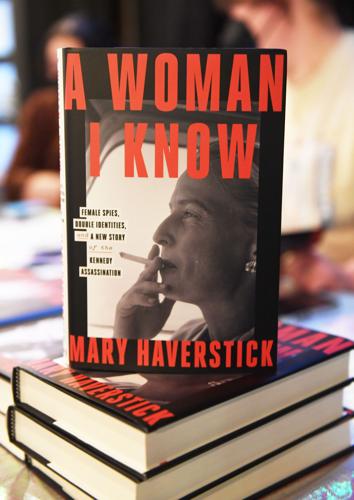
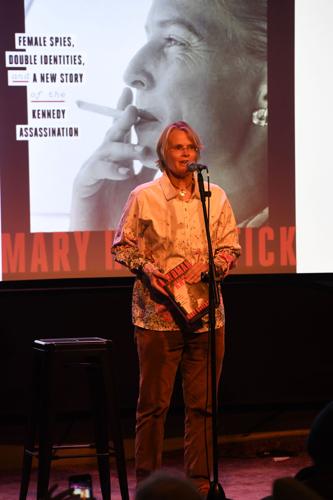
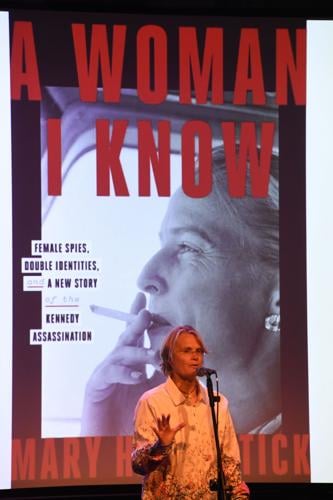
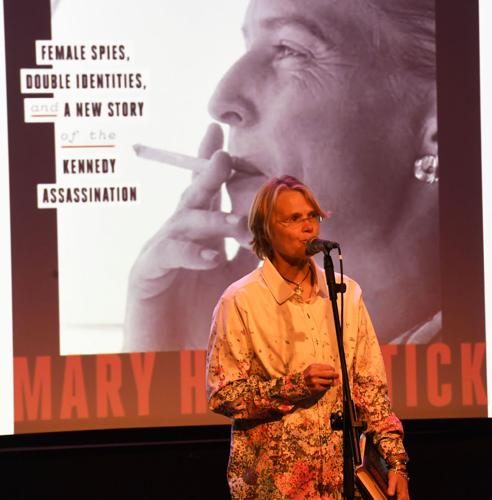
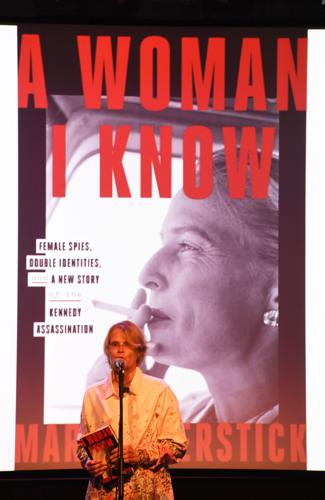
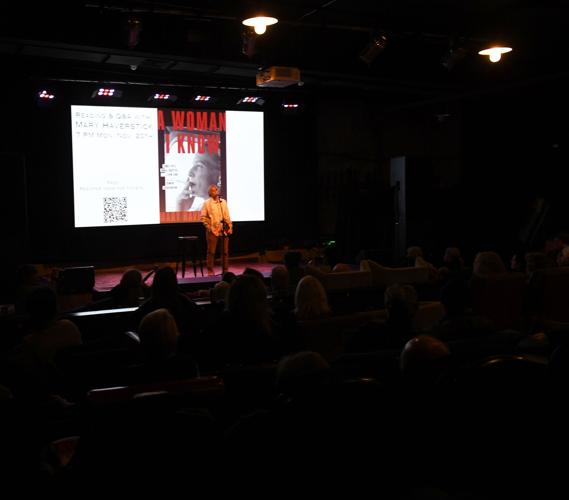
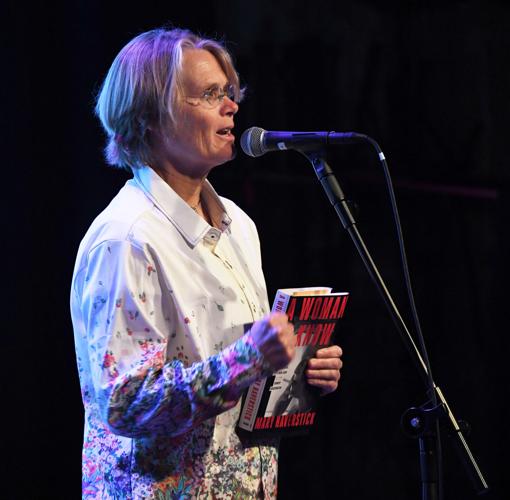
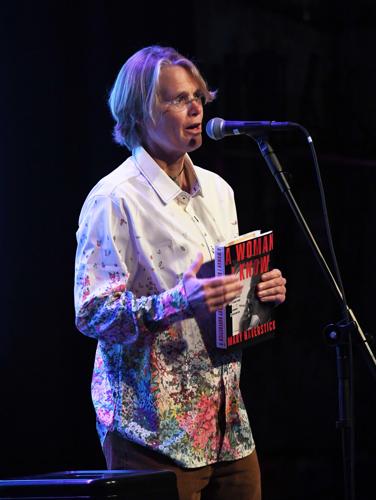
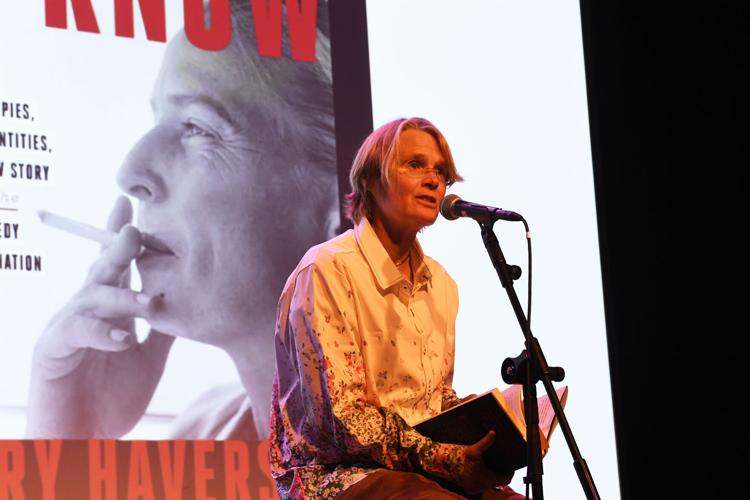
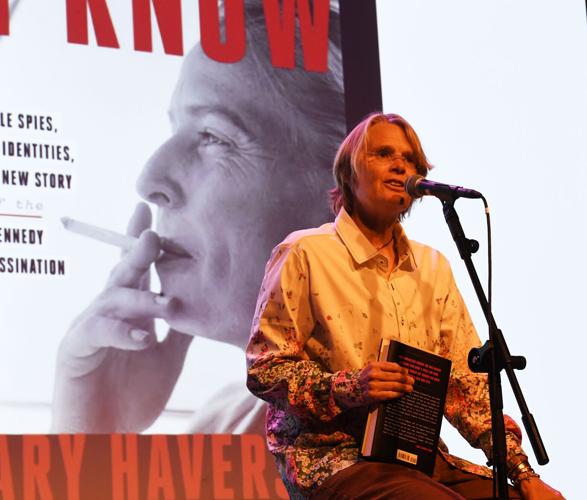
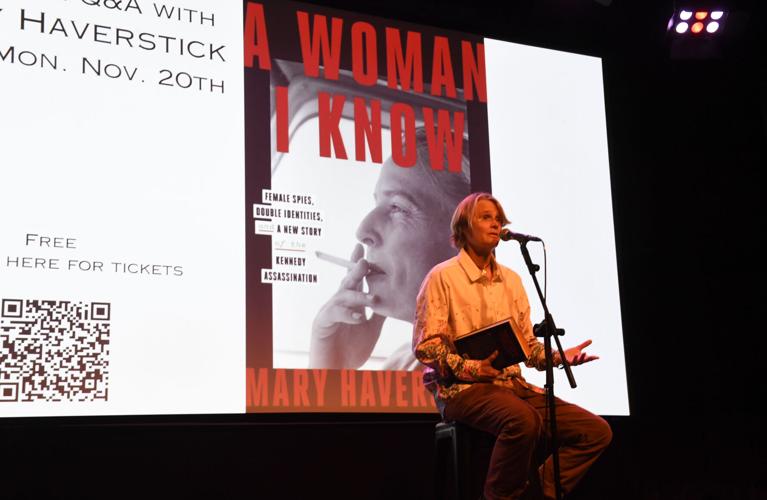
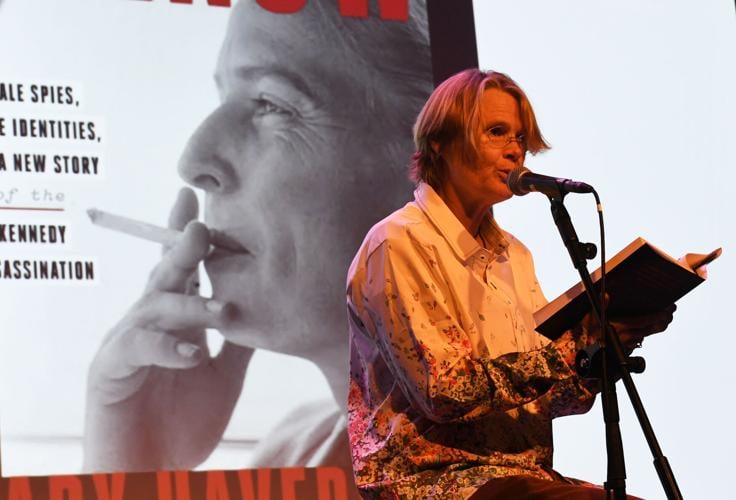

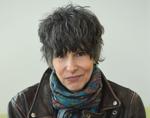














0 Response to "Lancaster film director Mary Haverstick charts a historical course with debut book 'A Woman I Know' - LNP | LancasterOnline"
Post a Comment